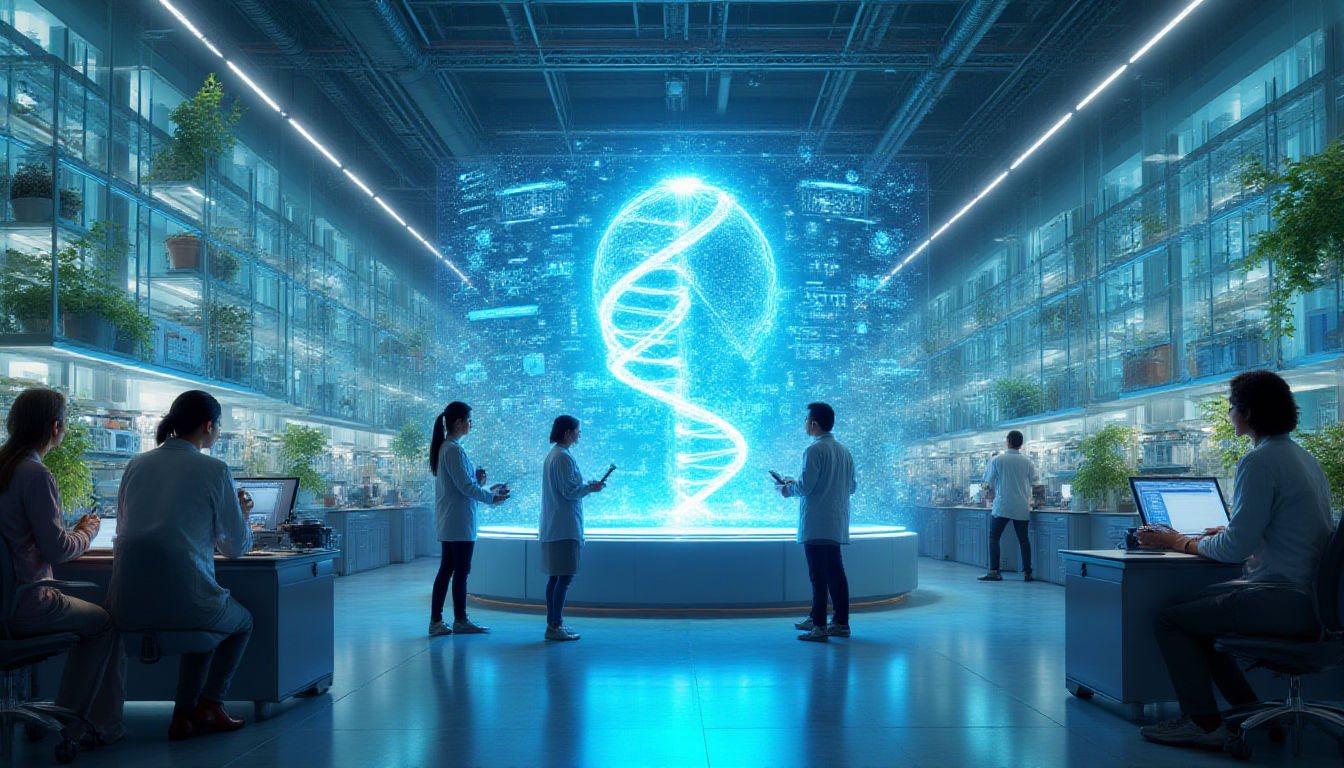Introduction
In recent years, the dialogue around AI and longevity has gained significant traction, spotlighting how recent technological leaps are reshaping our understanding of human lifespan and health. The convergence of artificial intelligence and biotechnology is not just a topic of interest for scientists and futurists; it has powerful implications for all of us. AI advancements offer promising avenues in longevity studies, potentially revolutionizing how we age and live. This blog post will explore this intersection, examining both the optimistic predictions and the inherent challenges in using AI to extend life. Let’s uncover how these developments could transform our approach to aging.
Background
Throughout history, humanity has been fascinated by the possibility of delaying aging, if not achieving immortality. Ancient myths often described fountains of youth or elixirs of life, captivating our imagination with the possibility of defeating time. While such tales are just that—tales—the modern conversation is increasingly grounded in scientific research and biotechnology. Biotechnology has provided significant breakthroughs in health and medicine, laying the groundwork for more focused longevity studies.
Artificial Intelligence steps into this landscape as a game-changer due to its ability to process huge datasets and identify patterns beyond human capacity. Influential figures such as Vladimir Putin and Xi Jinping have commented on the limitations of current solutions like organ transplantation. As Xi Jinping remarked, \”These days at 70 years old you are still a child,\” highlighting how lifespan perceptions are evolving. However, current transplantation techniques are unlikely to significantly extend human life, emphasizing the need for innovative AI applications Technology Review.
Trend
The trends in AI and longevity are compelling, with a variety of innovative approaches emerging. AI is being used to decode genetic blueprints, simulate wear and tear on organs, and even develop personalized medicine regimens. These tools are not just enhancing our theoretical understanding but have practical implications for biotechnology. Societal perceptions of these technologies show a curious blend of optimism and skepticism, often revolving around the enduring immortality myth.
Debates continue on the ethical front, questioning how these technologies will be accessible and the societal impact they might introduce. As Vladimir Putin points out, \”With the developments of biotechnology… people can live younger and younger,\” Technology Review hinting at potential socio-economic shifts if such technology becomes mainstream.
Insight
Understanding the complexity of aging is crucial in grasping AI’s potential in this field. Aging is not just the result of biological wear and tear; various factors, including genetics, lifestyle, and environment, all play critical roles. AI’s ability to analyze and interpret these multifaceted data sets can lead to personalized interventions that enhance lifespan quality.
Consider the example of India’s use of robots in sanitation to improve public health indirectly. These robots, used to clean sewers, eliminate the hazardous task of manual scavenging, thereby improving the life quality of sanitation workers while reducing health risks—a step that echoes AI’s potential: improving quality of life, thus extending it Technology Review.
Forecast
Looking forward, AI and biotechnology may herald significant breakthroughs in how we conceive of human lifespan. Researchers are exploring AI-assisted drug development, regenerative medicine, and even digital models of human organs to predict disease outcomes and treatments more accurately. However, these advances come with psychological and ethical considerations. What does it mean to live in a world where lifespans are significantly extended? How do we redefine aspects of human experience, such as career and family life?
Ethics aside, the future holds the tantalizing possibility of living healthier, longer lives, positioning AI and biotechnology at the forefront of this transformation. However, achieving this requires not just technological innovation but a conscientious commitment to equitable and ethical implementation.
Call to Action
Now more than ever, staying informed is essential. Advances in AI and longevity research are creating rapid changes in how we envision our futures. Subscribe to specialized newsletters, follow leading publications, and engage in discussions to be part of this transformative journey. Our understanding of life, aging, and health is on the brink of unprecedented change—don’t miss out.
For those interested, explore related articles like the one by Technology Review on the possibilities and realities of organ transplants and robotic solutions, which offer current world insights into longevity challenges and technological interventions Read more here.
The integration of AI in longevity is unfolding, and its impacts will likely ripple through every facet of our lives. Are you ready to navigate this future?
